The four Indian national-level businesses are “ABCD”: A-Astrology Astrology, B-Bollywood Bollywood, C-Cricket Cricket, and D-Devotion Religion. Cui Huaizhou chose A.
Editor’s note: This article is from the micro-channel public number “Chi as the network” (ID: passagegroup) , Author: Cui Huaizhou.
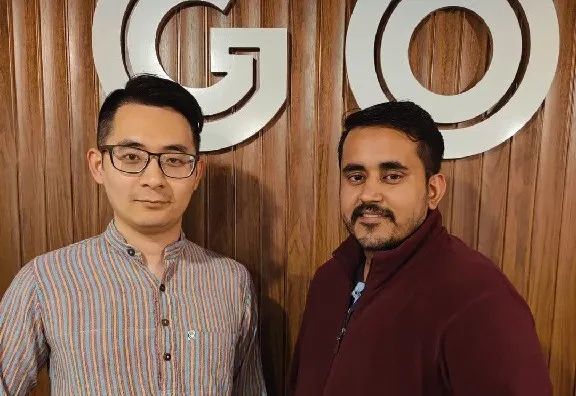
The four Indian national-level businesses are “ABCD”: A-Astrology Astrology, B-Bollywood Bollywood, C-Cricket Cricket, and D-Devotion Religion. Cui Huaizhou chose A.
Cui Huaizhou has a glorious resume. Graduated from Zhejiang University, the first job was in Baidu, and then went to the star startup company Pea Pod, and then went to work on the fast hand and the giant YY.
In the spring of “Middle-aged Crisis”, Cui Huaizhou decided to go to Delhi, India, and start to be an “Indian version of the fast hand”. But at the end of the year, he made an unexpected decision: he turned the team’s full energy to a new area-Astrology.
Behind the transition, this is the collective dilemma of Chinese entrepreneurs in India: there is growth, no income, and difficulty in realizing. What should the Indian market do?
When the new crown hits various industries, how to make cash flow, make income, and strive to survive, become a test question for entrepreneurs going abroad.
Cui Huaizhou decided to abandon “Chinese thinking” and take root in the daily life of Indians to find the answer. After exploring the paid scenes in the streets, he found that horoscopes with mysticism naturally penetrate into the lives of Indians everywhere. His new goal is to move India’s scattered astrological market online to create a “Taobao” of the astrological industry. The following is a readme by Cui Huaizhou.
Core points:
In India, you cannot simply think in terms of the “China model”, especially startups;
Stay away from pessimistic entrepreneurs, and closer to real Indian users;
Starting business in India, the first priority is to verify business monetization, not product features or user growth;
If you want to do business monetization in India, you must find out the answer in Indian daily life.
Abandon “China Model” and look for “India Model”
In the National Day of 2017, I received an invitation from an Indian friend. I went to India for the first time and visited cities such as Mumbai, Delhi, and Gurgaon in the name of tourism. communicate with. Since then, I have formally forged a bond with India.
At the time, I was still in charge of the product, and I was the 217th employee. Kuaishou gave me a good vision, feelings and ideals, but I am still anxious and confused, always thinking: Where is my future direction?
During my fast-hand period, the fast-hand DAU (daily live) has increased from 30 million to 90 million, and the vibrato has also risen rapidly. The domestic short video field has formed the Matthew effect. Starting from 2017, the domestic entrepreneurial environment has become more brutal, and the cost of customer acquisition has risen sharply. The giants have followed up extremely fast. Based on my judgment of the general direction, I immediately started my career shift from domestic to overseas.
After returning to China in eleven, I left quickly and went to the company (one of the most experienced companies in the country) —Happy Times, which is YY, responsible for overseas business.
In the spring of 2019, I have been the Deputy General Manager of overseas short video business at YY for more than a year, and I have basic observations and reflections on the Indian market. After talking with Zhao Yang, a partner of D2F K2VC, I quickly received a million-dollar angel round of financing to officially start my own entrepreneurial journey in India and began a “new adventure.”
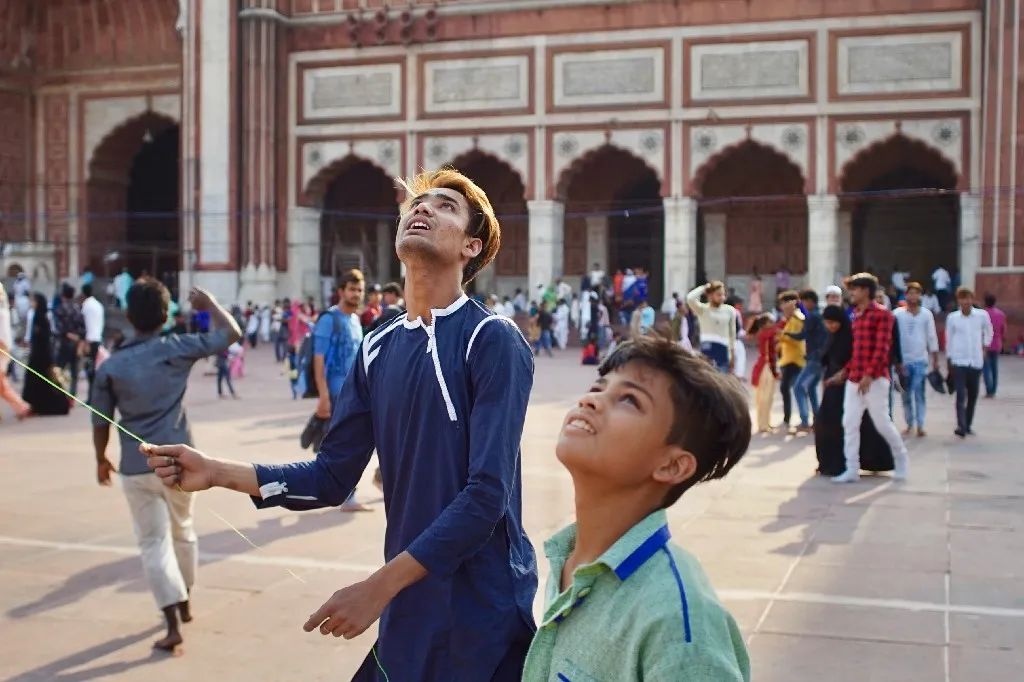
“Travel photos” when you first came to India, see young people flying kites in the square
In the beginning, I made a short video product, which is the Indian version of “Quick Hand”, a community based on UGC content. How it all sounds like a typical “China model”, or “Copy from China”. In just 4 months, our small team achieved 200,000 DAU, and new users stayed the next dayDeposits of more than 60%, and the natural increase even reached more than 95%.
It is not difficult to grow in India. There are many mobile users, young people, and many people willing to accept new products. However, the hard part is realizing them and letting them pay. In China, the fast way to obtain income by live broadcast rewards, take delivery and advertising, this path obviously does not work in India.
We did a preliminary commercialization test and found that eCPM (advertising revenue per thousand impressions) is low and we ca n’t make money back in the short term.
This is the trap of the “China model”: product data is growing rapidly, but business realization is difficult, and the balance of payments is far in the future. This is also the same dilemma encountered by most overseas entrepreneurs and investors.
Is India destined to be a “despair” for entrepreneurs going abroad?
The so-called “China model”, I personally think that there are 4 business paths: advertising, e-commerce, gaming and live streaming.
Ads and e-commerce need to rely on eCPM, which is essentially a per capita GDP issue. India has not yet reached a suitable time. Games and live broadcasts (and subscriptions) are essentially paying for virtual value-added services, and they need a culture of paid culture and long-term market education. In India, this user base is small and highly competitive.
To be honest, I did not prioritize monetization in the first place because I felt that my entire company’s mission was to be social and I wanted to make it for the UGC community. But by October 2019, all the external information told me that I could not continue to invest in social affairs, because it would be very dangerous, and there was no possibility of break-even in the short term. Besides, Tiktok is already big in India at this time. If I am a small startup and compete with it, the chance is close to zero.
I finally decided to go out of the “China model” and find a new way out.
Study “Astrology” and discover a new blue ocean
What business does an Indian pay for in his daily life? When I went into their lives to observe, I found that there are actually many good businesses.
For example, marriage events: including blind dates and weddings. Arranged marriages are still popular in India, and weddings are the most important ritual in the life of Indians. Indians have invested heavily in this area, and many people even borrow money to do weddings.
There are two other areas that are very similar to China, which are the issues of labor training and child education. Hundreds of millions of migrant workers in India are now working in cities, and satellite cities around Delhi are crowded with “migrant workers” who urgently need training in English and related skills. Also in India, which is a major education country, the college entrance examination is also a big mountain that weighs on Indian students, and the business of training and guidance will not be bad.
In fact, some people have already summarized it. The four largest Indian national-level businesses are “ABCD”: A-Astrology Astrology, B-Bollywood Bollywood, C-Cricket cricket, and D-Devotion religion.
Specifically, both Bollywood and cricket require content copyright, monopolize in the hands of large companies, and religion is too complicated and sensitive. Offline models in the fields of marriage, training, and education are heavy, and my team does not have enough industry accumulation.
I started to study A of “ABCD”-“Astrology”.
Since exploring the paid scenes in October 2019, I have discovered that mystic horoscopes naturally penetrate into the lives of Indians and are everywhere.
For example, TV stations have astrological channels, newspapers have divination content, and there are astrological shops in shopping malls; Indians have to calculate fortune before exams, find divinations for jobs, and ask for astrological matches when they are married … as long as you Being an Indian, regardless of gender, age and wealth, it is almost impossible to have no contact with astrology.
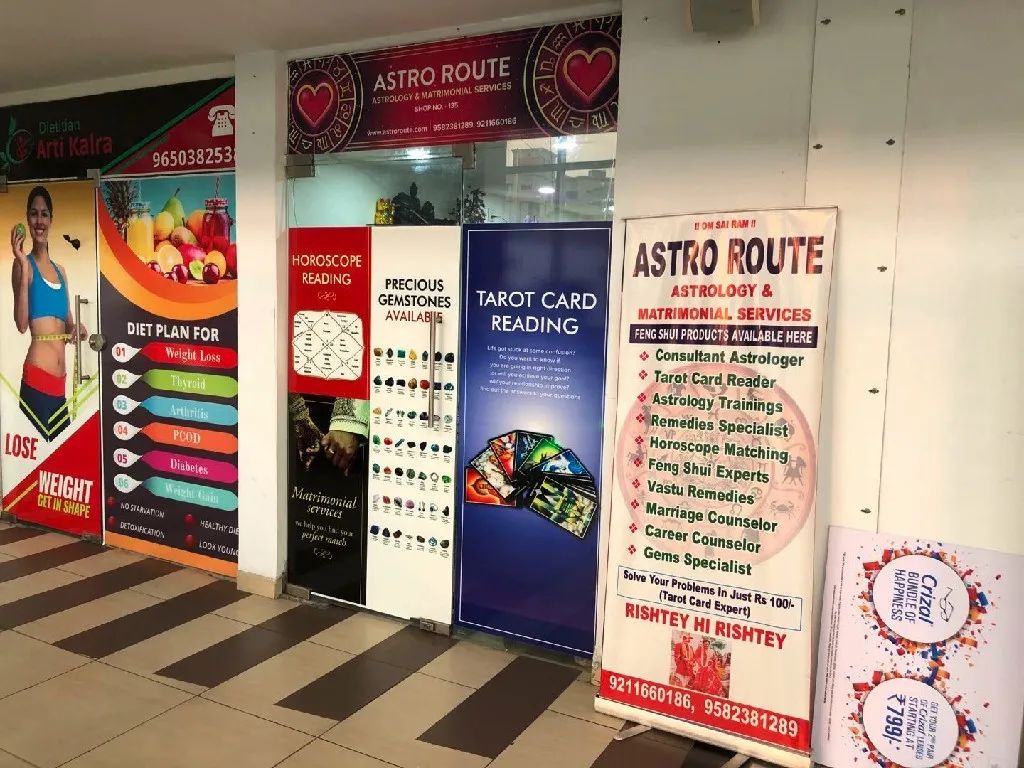
Astrological stores in India
China also has businesses such as astrological tarot and Zhouyi gossip, but because of different national conditions, it stays in the niche area. And in India, it has been integrated into life.
India is the largest religious country in the world. Affected by religion, people generally believe in mysticism. Astrology is an extension of religion, has a massive mass base in India, and has ubiquitous social influence.
As a result, horoscopes are a national business in India, with an estimated size of $ 10 billion per year. Together with the surrounding spiritual, healing, and Puja, it can reach $ 30 billion per year. According to public reports, India currently has at least 2 million astrologers and 10,000 astrological training schools. In addition, astrology also has a “scientific class” path: Driven by former science minister Murali Manohar Joshi, more than 30 universities have opened undergraduate and master’s degrees in astrology.
Astrology’s business is the easiest to go online, compared to the marriage, education, sports and film businesses. Before we did, there were astrological consultations in India by phone or online. Unlike live broadcast rewards, paid astrology is something they already recognize, and the model is ready.
Taobao in India’s astrology field
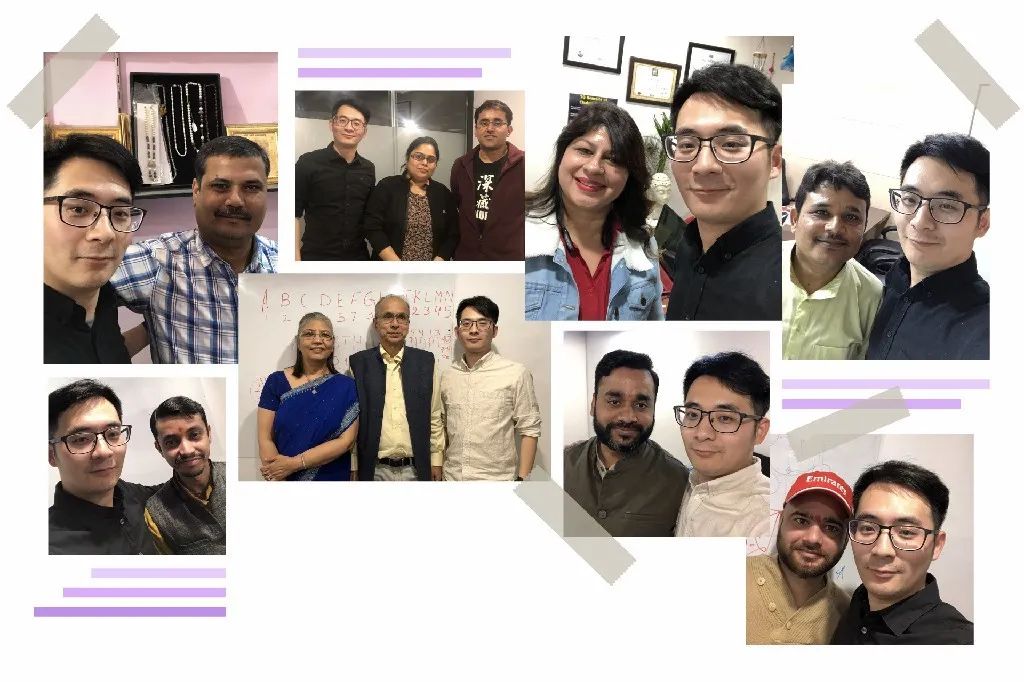
Visit Indian astrologer
Someone asked, is there such a large astrological market in India? Yes, very much. However, due to issues of trust and scale, the entire industry has no head brand at all, so that the entire market has the following characteristics: offline-oriented, highly fragmented industry, and long-tail effects.
First, traditional offline business
As astrological consulting is a non-standard service and relies on the basic trust relationship between astrologers and users, so ordinary people look for astrologers, either at stores or by referring friends. Although the services of websites or apps are also growing rapidly among young people, the absolute proportion is still too small. Moreover, the online business is mainly based on the astrologer’s Youtube and Instagram personal accounts, with limited traffic and influence. With 600 million mobile Internet users in India, going online is a big trend, and the core is how to solve the problem of trust online.
Second, a highly dispersed small workshop mode
A large number of astrologers in the streets and shopping malls of India are basically small workshops with 1-2 astrologers and several apprentices. Astrologers are fighting on their own, doing small businesses and not forming head brands.
The online horoscopes in India are also very fragmented. The largest AstroSage market share is only 4%, and the second place Ganesha Speaks has only 3% market share. In addition, there are thousands of horoscope websites and apps. More importantly, AstroSage had a revenue of only 20 million yuan last year, and its net profit margin was only about 10%. There was no scale at all.
Third, the long-tail effect of the disparity between the rich and the poor
After doing a lot of market research, we found a very surprising fact: 90% of the astrologers’ annual income is less than 50,000 yuan, and they do not have enough customers and income.

Our research on the Indian astrologer community
The astrological market is very large, with Celebrity and Expert accounts at the head.The star division does earn a lot, but it accounts for 1% of the total, and the revenue is only 10%. Most astrologers do not make enough money. The long tail effect is obvious, and the gap between rich and poor is wide.
These problems are particularly similar to those of Chinese retailers who opened small stores to make a living before Taobao appeared. After the emergence of platforms such as Taobao, the entire industry has undergone fundamental changes. The service efficiency of the stock market has been greatly improved, and incremental demand has also been generated.
In a highly decentralized market that relies on small and medium businesses to serve, it is the best mode to be a trading platform. Therefore, we want to be Taobao in the field of astrology, not to be self-employed.
So, we build a platform through the app, move the astrological service online, so that buyers have more choices and sellers get more customers. New solutions such as mobile payments, audio and video, AI, and e-commerce were used to build the infrastructure and fundamentally solve the problems of “trust” and “scale”.
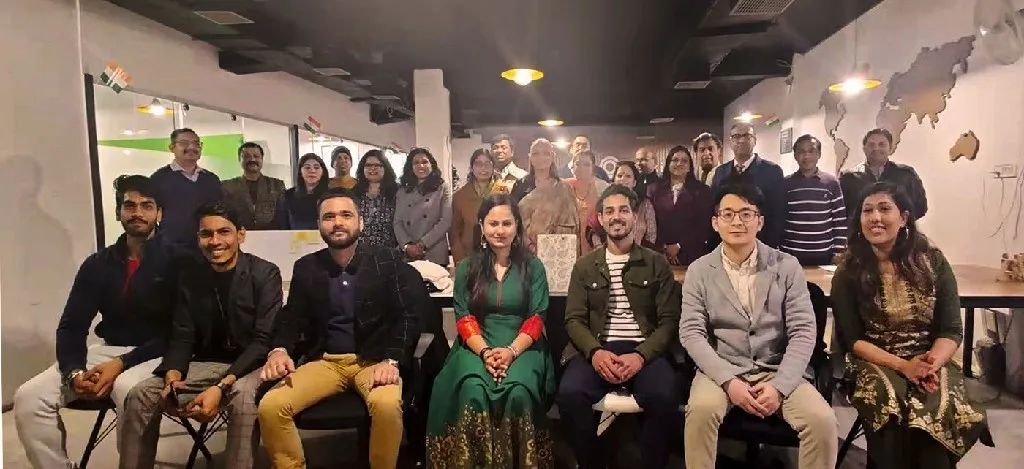
Cui Huaizhou and members of the Indian team (and the astrologer)
Living in a colleague’s house in India
Astrology is an extremely “Indian” business. It needs to be very grounded. To do business, you must partner with the right Indians.
My Indian co-founder Saarthak started making content community products in 2015. He has worked for Hike (Indian social unicorn) and Alibaba for many years. He also has entrepreneurial experience before and has deep insights into young Indians. Indian colleagues are also very dedicated, like the Beijing team 996, very combative.
Unlike Chinese work culture, Indians want their colleagues to be “family members.” As entrepreneurs, not only work with them, but also live together. In addition to getting along with my Indian colleagues every day, I often visit Indian colleagues’ families on weekends.
In the past month, I lived directly with a colleague. Because the epidemic stayed in India, I stayed at the partner’s house and three other colleagues for one week each, commuting to work together, and eating together. This is hard to imagine in China.
This week I live in the home of an operating colleague who is a Muslim family. When he first invited me, I was worried and wanted to politely decline. But he didn’t expect him to be sad after hearing my answer. At that time, I suddenly understood the meaning of “family” when my colleague in India said.
I have become an Indian food lover. What do they eatWhat I eat, like eating with my hands, I also enjoy this state. During work, I often visit Indian colleagues’ homes, chat with their elders, watch local programs with them, and feel like I have a home in India.
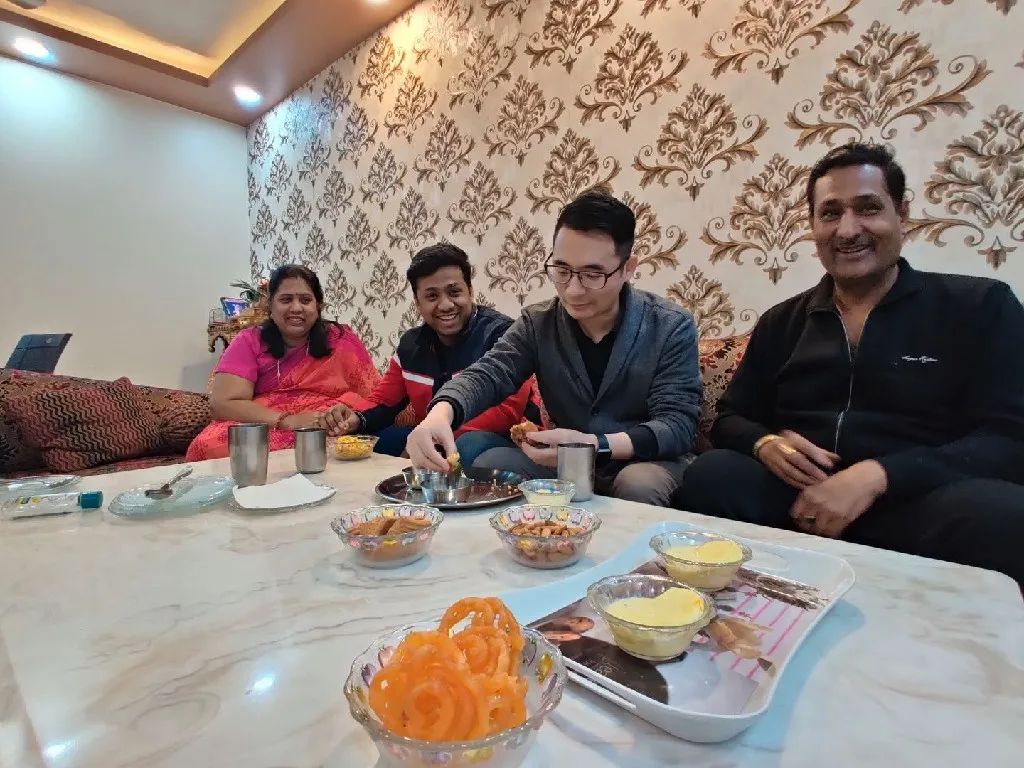
Visit a colleague’s home in India
Since the launch of our product in December 2019, revenue data has grown rapidly at a rate of 200% per month, and operating profit has been realized very quickly. Over the next year, we will work to become India’s largest horoscope platform, serving 1 million astrologers and 10 million users.
Is India a “despair” for going to sea? At least what we see is “land of hope.” As long as you are close to the user, observe carefully, and find the answer from real Indian daily life, there are unlimited business opportunities.